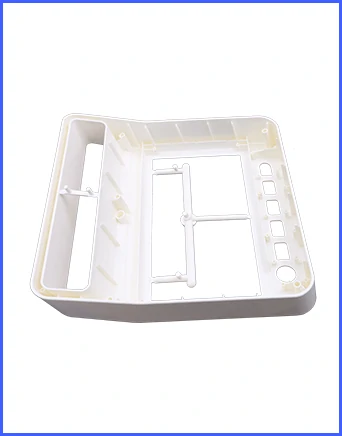Time to read: 6 min

Injection molding is a prevalent manufacturing technique that relies on plastic resins to create a variety of products. With numerous options available, selecting the appropriate resin for your project can be challenging. This article outlines the factors to consider and presents the top 10 plastic resins for injection molding, helping you make an informed choice for your manufacturing needs.
Introduction to Plastic Resins in Injection Molding
Plastic injection molding is a favored method for producing components with complex geometries and high precision. The choice of plastic resin is crucial, as it directly affects the product's quality, performance, and cost.
Understanding Plastic Resins
Plastic resin is derived from crude oil through a distillation process, followed by polymerization to form long hydrocarbon chains. These polymers are the foundation of various types of resins, each with unique properties suitable for different applications.
Top 10 Plastic Resins for Injection Molding
- Acrylonitrile Butadiene Styrene (ABS): Known for its durability, toughness, and strength, ABS is ideal for automotive parts, electronics, and toys.
- Low-Density Polyethylene (LDPE): Offers excellent resistance to moisture and chemicals, with applications in toys, compost bins, and medical products.
- High-Density Polyethylene (HDPE): Resistant to high impact, moisture, and heat, making it suitable for kitchenware and water bottles.
- Polyamide (Nylon): Stable, with resistance to electricity, wear, and chemicals, used in automotive and sports gear.
- Polypropylene (PP): Offers resistance to chemicals and electricity, with high elasticity and a high melting point, used in food containers and insulation.
- Polycarbonate (PC): One of the hardest resins, with high impact resistance and heat/fire resistance, used in transparent applications like phone screens and optical lenses.
- Acrylic (PMMA): Transparent and offers impact resistance, used in picture frames, eye lenses, and car screens.
- Polyetheretherketone (PEEK): Known for its resistance to chemical attack and heat degradation, used in the automotive and chemical processing industries.
- Polyoxymethylene (POM): Features good colorization and heat distortion properties, used in the automotive industry and for plastic gears.
- Thermoplastic Polyurethane (TPU): Known for its high elasticity, used in cable insulations, sports gear, and electrical tools.
Factors to Consider When Selecting Plastic Resins
- Mechanical Requirements: Consider hardness, flexibility, and tensile strength based on the product's intended use.
- Chemical Compatibility: Ensure the resin can withstand interactions with chemicals it may come into contact with.
- Environmental Compatibility: Assess how the resin performs under various temperature and weather conditions.
- Weight: Choose a resin based on the desired weight of the final product.
- Material Cost: Weigh the cost of the resin against its properties and the demands of your project.
Conclusion:
Selecting the right plastic resin for injection molding is critical for achieving the desired product quality and performance. By considering mechanical requirements, chemical and environmental compatibilities, weight, and cost, you can make an informed decision that aligns with your project's specific needs.
UnoFactory's Plastic Injection Molding Services
At UnoFactory, we offer a comprehensive range of plastic injection molding services tailored to your project requirements. Our team of skilled engineers is ready to assist you in selecting the appropriate resin and bringing your design to life with precision and efficiency.
Why choose UnoFactory for your plastic injection molding needs?
- A wide selection of production materials to choose from.
- Expert engineering support to ensure on-time delivery.
- Competitive pricing to minimize your production costs.
- Online quotations and free DFM analysis available on our digital manufacturing platform.
Visit UnoFactory today to transform your vision into reality with our reliable and high-quality injection molding services.
FAQs (Rewritten)
- Are Plastic Resins Harmful? Technically, they are not harmful after proper curing. However, care should be taken during use.
- What’s the Difference Between Resin and Plastic? Resin is a precursor to plastic, a viscous substance that hardens to form the finished plastic product.
- How to Identify Fake Plastic Resins? Positive Material Identification (PMI) can be used to verify the authenticity of plastic resins through chemical and physical analysis.




